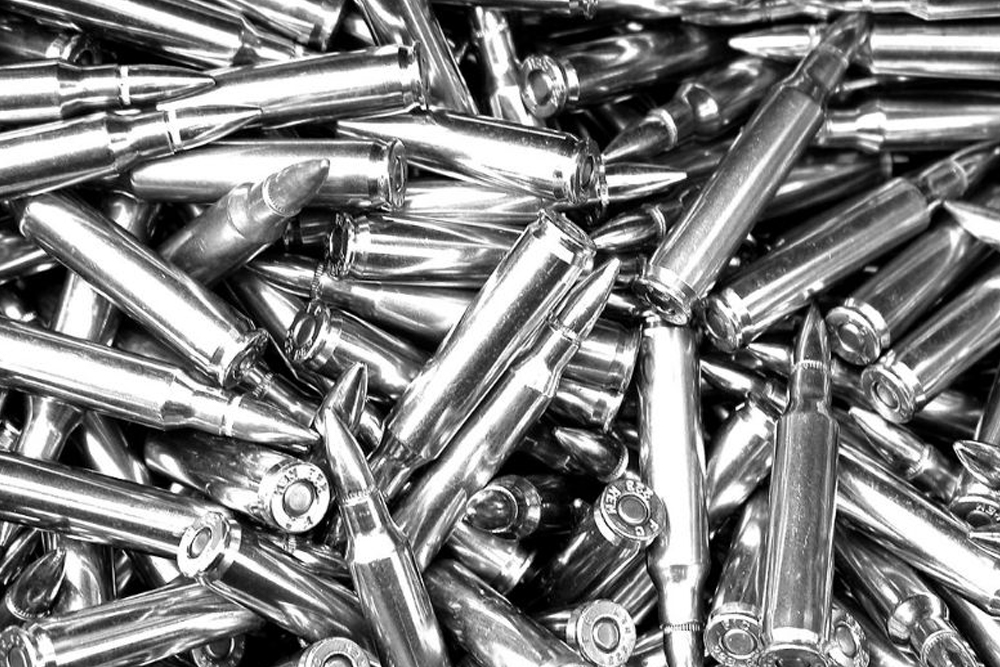Brass vs. Steel Ammo: Which one is the best?
Wherever you look in the firearms world, you can find a debate about something…AR15 vs. AR10, 9mm vs. .45 ACP, etc.
And like most things, everyone has their opinion….and then there are facts, and a lot of the time there’s not a lot of transition between the two.
So, today we decided to set the record straight on something that has been the cause of a lot of debate online: steel-cased vs. brass-cased ammo.
Some people say that brass ammo is better because it creates a better chamber seal than steel, brass is more malleable than steel which means less blow back in the chamber, so you have less gas and unburnt powder to pass back into your action every time it’s fired. While on the other hand, we have people who would rather die than pay the more expensive brass ammunition prices.
Each side has its disagreements.
Is one truly superior to the other? What’s the difference? Does it even matter? Which one should you be using? Why should you even care?
Let’s see if we can settle the debate (or more likely just add more fuel to it). We will cover both, lay out the pros and cons, and get to the bottom of which one of these is better.
So, let’s dive right into it.
Brass-cased ammunition pros and cons
Brass ammunition is generally considered to be superior to the steel-cased ammunition because it creates a better chamber seal. Which means you have less blowback into the chamber. As brass is more malleable than steel which is why it expands to snugly fit the walls of the chamber, leaving little room for gas and unburned powder to pass back into your firearm every time it’s fired.

Although steel-cased ammo is cheaper, it offers less flexibility in sealing the chamber allowing more malfunctions due to carbon buildup.
It also means that a rifle shooting steel-cased ammunition will be less reliable in the long run, although there are some exceptions to that, but we’ll get to that later.
Brass can be reloaded, steel can’t
Because it’s malleable and much softer which allows it to be reshaped to its original dimensions and reloaded. Generally, if you don’t intend to reload/handload your ammunition anyway, this won’t be a big concern for you.
But for high volume shooters, and those who want to get the most value for their money this is something serious.
Steel-cased ammunition can’t be easily resized…but we are sure that it can be reloaded, just not with the traditional loading methods. Because once they expand, they are likely to stay expanded meaning you are most likely getting two to three safe uses out of the case before it has been thrown away or completely recycled.
Steel-cased ammunition pros and cons
We did some serious testing to try to break AR-15s with steel-cased ammo. Those east block guns are built to function on steel-cased ammo and had no problem whatsoever.

It might come as a surprise that we also had no problem dealing with steel-cased ammo on modern made, well maintained AR-15s. That’s because the steel cases are annealed; they are softer steel than the steel that’s on the bolt carrier group they are also softer steel than that the barrel is made up of. So, you are not dealing with as much of that wear and tear and all of the abrasion that people think is happening with steel-cased ammunition.
Lacquer-coated steel-cased ammo also works fine on rifles
We have heard people say that lacquer-coated, steel-cased ammo is going to burn right off in the chamber of the hot gun and is going to gum up the entire action. Which is just another myth surrounding the hot topic.
We tried running lacquer-coated steel-cased ammo through an AR-15 as fast as we could, and we didn’t get any problems. We couldn’t make an AR-15 break when firing steel-cased ammo.
Steel ammo needs case coatings
Steel is naturally less slick than brass which causes more friction as the cartridge moves through the chamber. This is why most of the steel ammo comes with a coating to help with easy extraction and stay free of rust.
Although brass is naturally corrosion-resistant, you can find lots of brass ammunition coated for more reliability, but that’s not mandatory most of the time.
Choosing between steel and brass
Well, it really boils down to personal preferences.
Is brass-cased ammo better than steel-cased ammo? Yes, but it’s a little bit more expensive. However, if you are out there just plinking and doing occasional training, steel-cased ammo is going to work for you really well. Steel-cased ammo is not going to destroy your gun, you don’t have to worry that much about it.
But will you get the same level of accuracy and clean shooting that you get with high-quality brass-cased ammunition? No, you won’t. That’s because steel is a little bit lower quality, but it’s definitely not going to break your firearm.
While you are still here, we are glad you read this post all the way to the end, just a reminder that we have just added new stock of single boxes and bulk ammo on our website. You can browse around here and order the desired quantities.
